|
Books Should Be Free Loyal Books Free Public Domain Audiobooks & eBook Downloads |
|
|
Books Should Be Free Loyal Books Free Public Domain Audiobooks & eBook Downloads |
|
Literature |
|---|
|
Book type:
Sort by:
View by:
|
By: Franz Kafka (1883-1924) | |
|---|---|
 Metamorphosis (version 4)
Metamorphosis (version 4)
This story, about a man who wakes up transformed into a bug and the repercussions it has on his life and the people around him, has intrigued me for many years. The translation is by Ian Johnston, not the translator that is in Gutenberg; I like Johnston's more. What does it mean? [Spoiler possibly]In my mind it is not complicated at all and is most probably an autobiography of how Kafka himself had experienced his early life living with his parents. Kafka describes how he had experienced his parents’ financial and emotional exploitation's of him, to the point of detaching from them and thereby ceasing to be their son ... | |
 Metamorphosis (version 3)
Metamorphosis (version 3)
The Metamorphosis (German: Die Verwandlung, also sometimes translated as The Transformation) is a novella by Franz Kafka, first published in 1915. It has been cited as one of the seminal works of fiction of the 20th century and is studied in colleges and universities across the Western world. The story begins with a traveling salesman, Gregor Samsa, waking to find himself transformed (metamorphosed) into a large, monstrous insect-like creature. The cause of Samsa's transformation is never revealed, and Kafka never did give an explanation... | |
By: Frederic Taber Cooper (1864-1937) | |
|---|---|
 Some American Storytellers
Some American Storytellers
Frederic Taber Cooper, who was an editor and author, provides a superb insight into the works of some of the most popular authors of the turn of the century decade. Excerpt: The subjects of the essays included in this volume differ widely in aim and in accomplishment; but all of them possess, to a considerable extent, the gift that makes them next of kin to the minstrel and troubadour, to the ancient fabulist, and to the forgotten spinner of the world s first nursery tales, the gift of holding the attention by the spell of the spoken word. - Summary by Celine Major | |
By: Frederick Philip Grove (1879-1948) | |
|---|---|
 Settlers of the Marsh
Settlers of the Marsh
The novel “Settlers of the Marsh” is a foundational work of realism in Canadian fiction. Its author, Frederick Philip Grove, a German immigrant, settled in Manitoba and wrote vividly about the struggles of settlers in the early multi-ethnic communities of western Canada. The protagonist of “Settlers of the Marsh” is a Swedish immigrant who wrestles in stoic solitude with the hardships of pioneer life, only to discover that he has been catastrophically naïve about relations with women. Some early reviewers objected that the novel’s treatment of sexuality was “indecent,” but the book is today seen as a cornerstone of Canadian literature. - Summary by Bruce Pirie | |
By: Frederick Arnold Kummer (1873-1943) | |
|---|---|
 Film of Fear
Film of Fear
(Written under the pseudonym, Arnold Fredericks.) Ruth Morton is a world-renowned film actress who seems to have it all: youth, beauty, wealth, and a viable career. But she soon becomes the target of a malicious stalker who begins sending her a series of cryptic threats. Dismissed at first, the stalker soon emerges as a legitimate -- and mysterious -- threat. She soon must call for the services of Richard and Grace Duvall, a husband and wife detective team who soon find themselves ensnared in a mystery where everyone soon becomes a target. | |
By: Frederick Marryat (1792-1848) | |
|---|---|
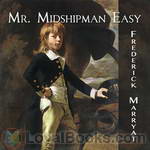 Mr. Midshipman Easy
Mr. Midshipman Easy
One of the first novel-length pieces of nautical fiction, MR. MIDSHIPMAN EASY (1836) is a funny and easygoing account of the adventures of Jack Easy, a son of privilege who joins the Royal Navy. The work begins as a satire on Jack’s attachment to “the rights of man” that may try the listener’s patience. But despair not, for the story soon settles down as the philosophical midshipman begins his many triumphs over bullies, foul weather, and various damned foreigners of murderous intent.Caveat audiens: This novel employs racial/ethnic epithets and religious stereotypes, as well as taking a rather sunny view of supply-side economics... | |
 Jacob Faithful
Jacob Faithful
Rebelling against the career chosen for him by his wealthy family, Frederic Marryat joined the Royal Navy in 1806 at the age of 14. He first served as a midshipman in the 38-gun frigate "HMS Imperieuse" commanded by Lord Cochran, 10th Earl of Dundonald whose real life exploits were used by Marryat in his fiction and which formed the basis for other famous fictional characters like Horatio Hornblower and Jack Aubrey. Having survived more than 50 sea battles and attained the rank of Post Captain, he resigned from the Navy and devoted the rest of his life to writing, drawing a good deal on his distinguished career in the Navy and is now considered the Father of Modern Nautical Fiction... | |
 Snarleyyow
Snarleyyow
This is a quite amusing nautical tale of the British Navy of the around the year 1700. While, as with much early 'humor', it is somewhat heavy-handed, the sympathies of the author are clear and good, and cruelty is often averted by good fortune or background characters. First published under the title 'The Dog Fiend', the primary characters are an evil captain of a cutter and his dog. The dog seems indestructible, as is the poor cabin boy who is the butt of the captain's ill humor, and who often is chewed on by the dog... | |
 Naval Officer, or Scenes in the Life and Adventures of Frank Mildmay
Naval Officer, or Scenes in the Life and Adventures of Frank Mildmay
Marryat was a midshipman under Captain Cochrane and this, his first naval adventure, is considered to be a highly autobiographical telling of his adventures with one of Britain's most famous and daring naval captains. | |
By: Frederick O. Bartlett (1876-1945) | |
|---|---|
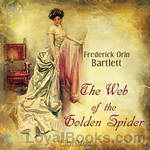 The Web of the Golden Spider
The Web of the Golden Spider
The Web of the Golden Spider is a tale of mystery, intrigue and adventure that begins in the city, progresses to a mutinous open sea voyage, eventually leading to the remotest areas on the slopes of the Andes of South America. Wilson, our hero, finds himself in the midst of a battle between a deposed queen and revolutionists who have banded together in an effort to bring their country together as a republic. Wilson, although torn between helping mercenaries, freedom fighters and revolutionaries, is more concerned with the rescuing of the girl he has fallen in love with, but who has been snatched from him by a mysterious priest... | |
By: Frederik Pohl | |
|---|---|
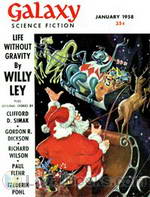 The Knights of Arthur
The Knights of Arthur
Sailors Sam Dunlap and Arthur check in to a New York hotel to await their mate Vern Engdahl when a girl shows up proposing to purchase Arthur. They need guys like Arthur to help run the city, and the fact that he fits in a small suitcase is even better. – The Knights of Arthur was first published in the January 1958 edition of Galaxy Science Fiction magazine. | |
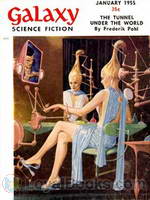 Tunnel Under The World
Tunnel Under The World
This famous Pohl story explores cybernetic robots and implanted personalities in a way that certainly expanded my way of looking at reality. Is that wall really real? or is it just kinda, sorta real? And who am I? The protagonist, Guy Burckhardt, wakes up screaming from a horrible dream of explosions, searing fire, choking gas and other terrible ways to die. But he wakes up so it must have been just a bad nightmare, right? To find out that piece of information you will need to listen to this inventive and scary story. | |
By: Frederika Richardson Macdonald | |
|---|---|
 Secret of Charlotte Brontë
Secret of Charlotte Brontë
Twenty years ago, now, I attempted (but was not especially successful in the task) to establish upon the personal knowledge that my own residence as a pupil in the historical Pensionnat in the Rue d'Isabelle, at Bruxelles gave me of the facts of Charlotte Brontë's relationships to Monsieur and Madame Heger, right impressions about the experiences and emotions she underwent between 1842 and 1846, and that supply the key and clue to the right interpretation of her genius. Every opinion I then ventured... | |
By: Friedrich de La Motte-Fouqué (1777-1843) | |
|---|---|
 Undine
Undine
Undine is a novel by Friedrich de la Motte Fouqué concerning Undine, a water spirit who marries a Knight named Huldebrand in order to gain a soul. It is an early German romance, which has been translated into English and other languages. The novel served as inspiration for two operas in the romantic style by Ernst Theodor Amadeus Hoffmann and Albert Lortzing, respectively, and two ballets: the nineteenth century Ondine and the twentieth century Undine. An edition of the book was illustrated by Arthur Rackham... | |
By: Friedrich Nietzsche (1844-1900) | |
|---|---|
 Case of Wagner / Nietzsche Contra Wagner / Selected Aphorisms
Case of Wagner / Nietzsche Contra Wagner / Selected Aphorisms
A collection of three of Nietzsche's writings concerning the music of Wagner. In particular, he relates Wagner's music as degenerate, unrefined and unintelligent and relates it to a gradually degenerating German culture and society. The translator provides a detailed introduction. | |
 Birth of Tragedy
Birth of Tragedy
In this famous early work of German philosopher Friedrich Nietzsche, he investigates the artistic characteristics of Apollonian and Dionysian characteristics in Greek art, specifically in Greek tragedy as it evolved. Then he applies his conclusions about Greek tragedy to the state of modern art, especially modern German art and specifically to the operas of Richard Wagner. | |
By: Friedrich Schiller (1759-1805) | |
|---|---|
 Mary Stuart
Mary Stuart
Schiller's tragedy depicts the final days of Mary, Queen of Scots, who has been imprisoned by her cousin, Queen Elizabeth I, because of her potential claim on the English throne. The action of the play revolves around an attempt to rescue Mary from prison and Elizabeth's indecision over whether or not to have her executed. The 1801 translation is by Joseph Mellish, a friend of Schiller's. | |
 Love and Intrigue
Love and Intrigue
Ferdinand is an army major and son of President von Walter, a high-ranking noble in a German duke's court, while Luise Miller is the daughter of a middle-class musician. The couple fall in love with each other, but both their fathers tell them to end their affair. The President instead wants to expand his own influence by marrying Ferdinand to Lady Milford, the duke's mistress, but Ferdinand rebels against his father's plan and tries to persuade Luise to elope with him. | |
 Camp of Wallenstein
Camp of Wallenstein
This is the first play of Friedrich Schiller's Wallenstein Trilogy. Set in a Bohemian camp during the Thirty Years War, it introduces the major characters of the rest of the trilogy, like Albrecht von Wallenstein and Max Piccolomini, from their subordinates' point of view. | |
By: Fritz Leiber (1910-1992) | |
|---|---|
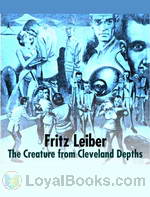 The Creature from Cleveland Depths
The Creature from Cleveland Depths
“The Creature from Cleveland Depths” also known as “The Lone Wolf” tells the story of a writer and his wife who refuse to move below-ground after the cold-war gets hot. The underground society discovers a decline in their ability to creatively innovate, and must consult with surface dwellers to develop products that satiate the needs of a people living like moles. But the latest product to result from this alliance, “The Tickler” has frightening implications that only our heroes seem to notice. – This story appeared in the December, 1962 issue of “Galaxy” magazine. | |
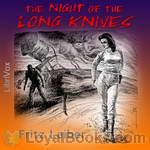 The Night of the Long Knives
The Night of the Long Knives
"I was one hundred miles from Nowhere—and I mean that literally—when I spotted this girl out of the corner of my eye. I'd been keeping an extra lookout because I still expected the other undead bugger left over from the murder party at Nowhere to be stalking me." In a Post apocalyptic world, the few people left must be strong. And must not hesitate to kill. Of course, killing another Deathlander was one of the chief pleasures and urges of all the solitary wanders in this vast wasteland. Kill and kill again. But this other was a girl and that brought up the second great urge: sex. Which was it to be today? Perhaps both? | |
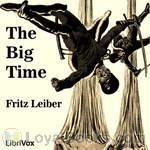 The Big Time
The Big Time
A classic locked room mystery, in a not-so-classic setting. (Intro by Karen Savage) | |
 No Great Magic
No Great Magic
They were a traveling group of Shakespearean players; perfectly harmless, right? Wrong. For one thing, why did they have spacemen costumes in their wardrobes, right next to caveman ones? Why was the girl in charge of backstage suffering from amnesia and agoraphobia? No Great Magic is needed to perform the plays they put on, but sometimes great science. No matter where, or when. | |
 Three Science Fiction Stories by Fritz Leiber
Three Science Fiction Stories by Fritz Leiber
The Moon is Green, Bread Overhead and What's He Doing In There?! Three of the best known and loved Science Fiction short stories by the wonderful Fritz Lieber. Always tongue in cheek, and always with a funny twist, Leiber deftly shows how humans will adapt to or mess up the future. In ways that only humans can. | |
By: Fyodor Dostoyevsky (1821-1881) | |
|---|---|
 Crime and Punishment
Crime and Punishment
A mysterious crime is being plotted in a tiny garret above a dilapidated apartment building in St Petersburg in Russia. The plotter, Rodion Raskolinikov, is a poor student who has delusions of ridding the world of “worthless vermin” and counter balancing these crimes with good deeds. He commits a murder to test his own theories and prove that crime comes naturally to the human species. Crime and Punishment is a path-breaking novel of ideas that changed the course of novel writing in the 20th century... | |
 The Brothers Karamazov
The Brothers Karamazov
Set in 19th century Russia, The Brothers Karamazov (Russian: Братья Карамазовы) is the last novel written by the illustrious author Fyodor Dostoyevsky who died a few months before the book's publication. The deeply philosophical and passionate novel tells the story of Fyodor Karamazov, an immoral debauch whose sole aim in life is the acquisition of wealth. Twice married, he has three sons whose welfare and upbringing, he cares nothing about. At the beginning of the story, Dimitri Karamazov, the eldest son who is now a twenty-eight year old war veteran, returns to his home town to claim the inheritance left to him by his dead mother... | |
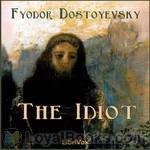 The Idiot
The Idiot
The extraordinary child-adult Prince Myshkin, confined for several years in a Swiss sanatorium suffering from severe epilepsy, returns to Russia to claim his inheritance and to find a place in healthy human society.The teeming St Petersburg community he enters is far from receptive to an innocent like himself, despite some early successes and relentless pursuit by grotesque fortune-hunters. His naive gaucheries give rise to extreme reactions among his new acquaintance, ranging from anguished protectiveness to mockery and contempt... | |
 Landlady
Landlady
Everything changed when Ordynov, a secluded young thinker, stepped out of his old lodgings in search of another corner. The ailing landlord watched from a distance, while the beautiful landlady came close... A tale of love, murder, and sorcery, The Landlady is one of a kind among Fyodor Dostoevsky's works. Written at the age of 26 before he was sent to Siberia, preceded only by The Double and Poor Folk, this novella draws inspiration from Russian folklore as well as stories by Pushkin and Gogol. It anticipates some of the writer's most important ideas to be developed in his later writings. | |
 Crocodile
Crocodile
Ivan Matveich, the most ordinary person you might hope to meet, is swallowed alive by a crocodile at a sideshow. Finding life inside the belly of the beast quite comfortable, he makes a home for himself there. His disquisitions on the state of the world from inside the crocodile make him quite a name for himself; while all the while the discussion rages outside as to whether the beast is going to be cut open to release him or not, its value as a sideshow attraction having massively increased owing to the presence of the human voice buried inside it. One of Jorge Luis Borges' seven most favourite stories. - Summary by Tony Addison | |
 Double: A Petersburg Poem (Version 2)
Double: A Petersburg Poem (Version 2)
In this classic novella, the life of a drab office clerk named Golyadkin begins to be haunted by his "doppelgänger," a man identical to him possessing all the charm and charisma Golyadkin lacks. This double shows up over and over again, succeeding in the things Golyadkin has failed to do throughout his life. As this double infiltrates himself more and more into Golyadkin's life, the reader is left wondering who he is and what his purposes might be. - Summary by Magda Wilde | |
 House of the Dead
House of the Dead
The House of the Dead is a novel published in 1861 by Russian author Fyodor Dostoyevsky, which portrays the life of convicts in a Siberian prison camp. Dostoyevsky himself spent four years in exile in such a camp following his conviction for involvement in the Petrashevsky Circle. This experience allowed him to describe with great authenticity the conditions of prison life and the characters of the convicts. The narrator, Aleksandr Petrovich Goryanchikov, has been sentenced to penalty deportation to Siberia and ten years of hard labour... | |
By: G. K. Chesterton (1874-1936) | |
|---|---|
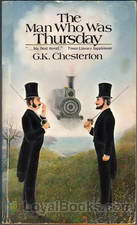 The Man Who was Thursday
The Man Who was Thursday
Two poets in a London park at sunset, debating on the attributes of poetry and whether it's really a metaphor for anarchy. A group that meets in secret, planning to overthrow the world order. Disguises and deceptions, ideals and ideology. A medley of themes and genres makes this a great read for anyone who's a fan of Chesterton and his iconic Father Brown. The Man Who Was Thursday includes Chesterton's favorite theme of Christianity with touches of delightful humor to enliven the twists and turns that abound throughout the book... | |